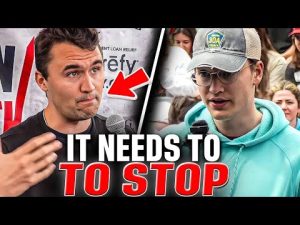In recent developments, there’s been a significant push to tackle gang networks that have infiltrated the United States. Leading the charge in this battle is Donald Trump, who’s ramping up efforts against notorious gangs like MS-13. His goal? To ensure the safety and security of the country. With the help of experts such as a former ATF Special Agent who has a wealth of experience working undercover in anti-gang units, there’s a clear intention to dismantle these dangerous organizations.
MS-13 and other gangs, like the Venezuelan gang Tren de Aragua, pose a significant threat due to their vast network and expansive global reach. These gangs aren’t just content with small-time crime; they’re forming alliances with larger enterprises and criminal syndicates around the world, from Europe to Central and South America. It’s like dealing with a weed in your garden—if you don’t root it out completely, it’ll just keep spreading. Their influence in the U.S. is growing, and if left unchecked, they could become deeply entrenched, much like allowing a disease to fester.
Recently, one of the top leaders of MS-13 in the U.S., Henry Santos, was arrested in Virginia. The current administration draws criticism for failing to act, as Santos had been in the country for over a decade and was, shockingly, recruited when he was in middle school. That’s right, middle school—a place where most kids are worried about their next math test, not becoming the next leader of a vicious gang. Yet here we are, with a government seemingly asleep at the wheel while gangs groom young recruits right under our noses.
These gangs are not just violent; they’re also highly strategic. Think of them as criminal masterminds who can switch from trafficking humans to dealing drugs without missing a beat, always looking for the next way to gain power and influence. They’re like chameleons, adapting to whatever crime will fill their pockets faster. It’s a harsh reality that these organizations, similar to the Mexican cartels, are agile and resourceful, constantly changing their methods to stay ahead of the law.
Governor Glenn Youngkin of Virginia has pointed out the problems posed by these gangs, especially in sanctuary cities where federal authorities face significant challenges. The analogy of a malignancy is spot on: these gangs, like a cancer, need to be removed as swiftly and thoroughly as possible. Criminal deportation remains a strong but underutilized tool in dealing with individuals who are in the country unlawfully. Yet, certain policies act as barriers, much like refusing treatment until the disease is too advanced. It’s high time these gangs were eradicated, and perhaps a more robust approach is what’s needed to address this crisis effectively.







